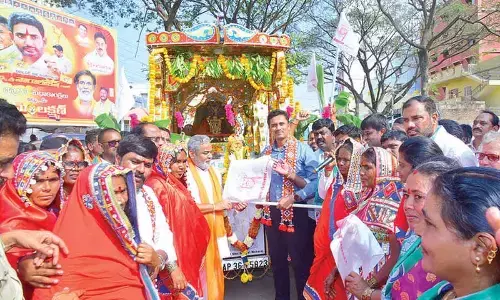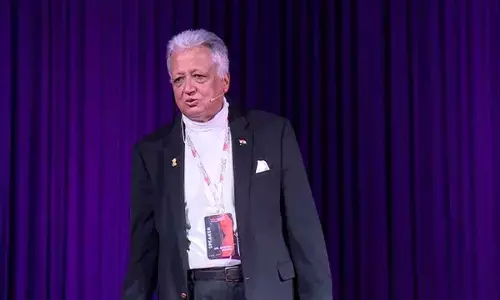The power of genuine feelings in our relationships

Since our childhood, we have been taught to be polite and to be nice to others
Since our childhood, we have been taught to be polite and to be nice to others. In a way, it’s important because you get what you give, and if we want others to be nice to us, our behaviour towards them should be similar, shouldn’t it? But! if our so-called nice behaviour is superficial, acting as a mask over not-so-nice feelings, it will not win us any goodwill in return, because the law of karma operates even at the most subtle level, which states: “As you sow, so shall you reap.” Hence, it is very important to have genuinely good feelings towards others, because when our feelings are pure, good wishes and nice behaviour come naturally. We don’t have to tell ourselves to be nice to someone or, at a more subtle level, suppress or dismiss negative thoughts that arise upon seeing someone. Because if the feelings are pure, such negativity would never arise from within us.
We have a tendency to have pure feelings and love towards our near and dear ones. We wish them well from the core of our hearts and celebrate their successes. Even when they fail, we give them hope and encourage them to do better. Why? Because we love them. But what about those outside the circle of our family and friends? Our feelings towards them keep changing according to how we perceive them. It is not that anyone is inherently bad, but it’s actually our perception that makes us react differently when the same mistake is made by a loved one or by someone else. To one, we show sympathy and understanding, and to the other, we may show irritation and anger. We are quick to affix negative labels to others viz: selfish, lazy, stupid, egoistic, etc. And whenever we see that person, or even think of him, the first thing that comes to our mind, consciously or unconsciously, is the label that we have assigned to him. Our thoughts, words, and behaviour towards that person are shaped by that label. Thus, we find ourselves unable to be nice to some people.
However, it’s important to understand that our perception can often be clouded by our own biases and prejudices. We may not always be aware of the reasons behind our judgments, and these judgments can lead us to act in ways that are not truly reflective of our values. By acknowledging this, we can start to challenge our own assumptions and work towards a more empathetic approach. For instance, if we encounter someone who initially seems unapproachable or difficult, instead of allowing our initial impression to dictate our interactions, we should take a moment to consider the possibility of underlying factors that might be influencing their behaviour. In addition, practicing mindfulness can play a crucial role in transforming our interactions with others. Mindfulness encourages us to be present in the moment and to approach each interaction with an open mind and heart. When we are mindful, we are less likely to react impulsively or allow our judgments to cloud our interactions. It helps us to listen more deeply and to respond with greater empathy. Moreover, fostering a habit of gratitude can also enhance our ability to maintain positive feelings towards others. When we regularly take time to reflect on the things we are grateful for, including the people in our lives, we cultivate a mindset of appreciation. This appreciation naturally extends to others, helping us to see the good in them even when it might be obscured by their actions or behavior.
Furthermore, building strong, authentic relationships requires effort and intentionality. It involves not just being kind in moments of ease but also extending understanding and support during challenging times. It means being willing to engage in open and honest communication and being receptive to feedback. When we invest in our relationships with sincerity, we create a foundation of trust and mutual respect, which enhances our ability to interact positively with everyone we encounter. In essence, the habit of looking at every person with mercy and compassion can lead to profound transformations—not just in them, but in us as well. When we consistently choose to see the good in others and extend our support, we create an environment where healing and growth are possible. By cultivating these attitudes and practices, we contribute to a more compassionate and understanding world. Remember! Each of us has the power to influence our surroundings through our actions and attitudes, and by choosing to engage with others in a meaningful and supportive way, we help build a community characterized by genuine goodwill and harmony.

















